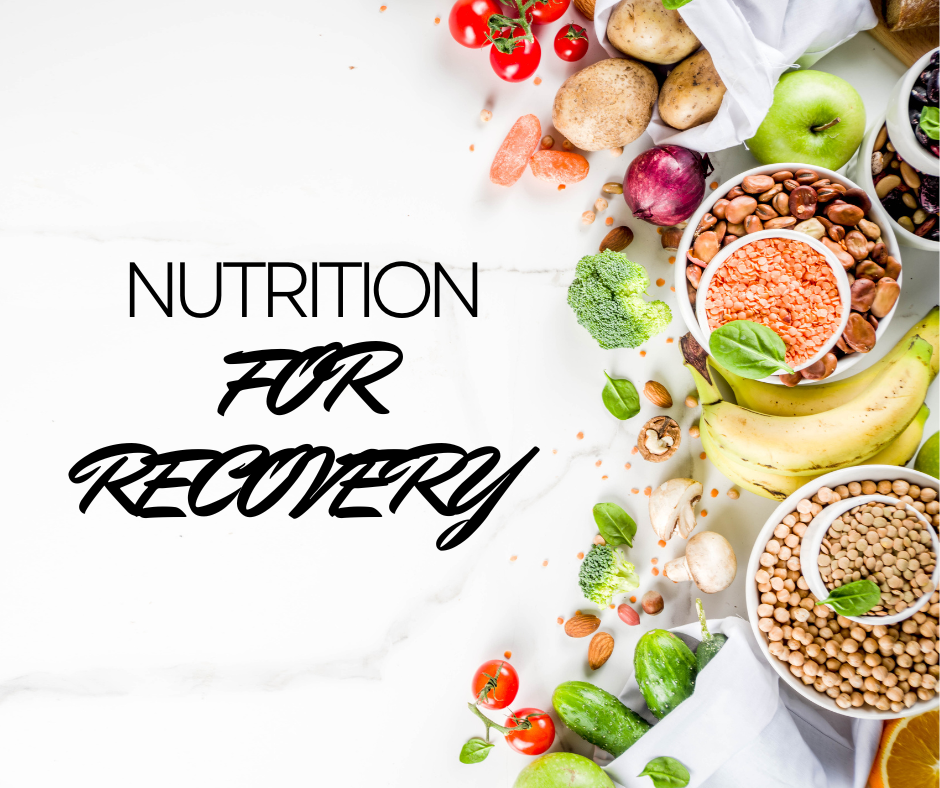Recovery from drug and alcohol addiction is a complex journey that involves physical, emotional, and psychological healing. One often overlooked aspect of this process is the role of good nutrition. Proper nutrition plays a pivotal role in the long-term recovery process, aiding in cell repair, neurotransmitter production, mood regulation, organ repair, hypoglycemia, post-acute withdrawal symptoms (PAWS), and overall physical and mental health.

CELL REPAIR
Prolonged use of drugs and alcohol can take a toll on the body’s cells and tissues, leading to oxidative stress, inflammation, and cellular damage. Nutrients such as antioxidants, vitamins, and minerals are essential for repairing damaged cells. Antioxidants help neutralize harmful free radicals, reducing oxidative stress and promoting cell regeneration. A balanced diet rich in these nutrients can aid in the recovery and healing of the body’s cells.
NEUROTRANSMITTERS
Addiction often disrupts the brain’s delicate balance of neurotransmitters, which are responsible for regulating mood, emotions, and behavior. Good nutrition can help restore this balance by providing the necessary building blocks for neurotransmitter production. Amino acids found in protein-rich foods are crucial for synthesizing neurotransmitters like serotonin and dopamine. A well-rounded diet ensures the brain has the raw materials it needs to support mental well-being and emotional stability.
MOOD REGULATION
Individuals in recovery can experience mood swings, anxiety, and depression. Proper nutrition can have a significant impact on mood regulation. Omega-3 fatty acids, found in foods like fatty fish, walnuts, and flaxseeds, have been linked to improved mood and reduced symptoms of depression. Additionally, maintaining stable blood sugar levels through balanced meals can help prevent mood fluctuations and reduce cravings.
IMMUNE SYSTEM SUPPORT
Drugs and alcohol weaken the immune system, making individuals more susceptible to illnesses. Adequate nutrition, including a variety of vitamins and minerals, helps bolster the immune system’s defenses and can aid in the prevention of illness during recovery.
ORGAN REPAIR
Substance use disorder can cause significant harm to vital organs, particularly the liver, kidneys, and heart. A balanced diet rich in antioxidants, vitamins, and minerals provides the necessary nutrients for these organs to heal and regenerate. Antioxidants help reduce oxidative stress and inflammation, key contributors to organ damage. By supporting organ repair through proper nutrition, individuals in recovery can enhance their overall health and increase their chances of sustained sobriety while reducing the risk of long-term health complications.
HYPOGLYCEMIA
Alcoholism can disrupt blood sugar regulation, leading to hypoglycemia, which can cause symptoms like dizziness, shakiness, irritability, and anxiety. To address hypoglycemia, individuals in recovery should focus on consuming balanced meals and snacks throughout the day, including complex carbohydrates, protein, and healthy fats. This can help stabilize blood sugar levels and reduce the risk of mood swings and cravings.
POST-ACUTE WITHDRAWAL SYMPTOMS
Many individuals in recovery experience post-acute withdrawal symptoms, which can last for months or even years after discontinuing substance use. These symptoms may include mood swings, sleep disturbances, and cognitive issues. Nutrition plays a crucial role in managing post-acute withdrawal, as a balanced diet can help stabilize mood, improve sleep quality, and support cognitive function.
ENERGY AND PHYSICAL WELLBEING
Recovery is a physically demanding process that requires energy and stamina. A well-balanced diet provides the necessary nutrients and energy to help individuals stay active and engaged in their recovery journey.

Nutrition is The Key to Recovery…
Good nutrition is vital to the recovery process. Healthy whole foods provide the raw material our bodies need to rebuild, repair, and produce much-needed feel-good neurotransmitters. At the same time, reducing intake of sugar, processed foods, and artificial additives helps reduce physical stress on our bodies’ systems. With more nutritious foods and less stress on the system, the body can more readily heal and restore itself. This makes all the difference in reducing post-acute withdrawal symptoms and having the inner resources to navigate the journey of recovery.



